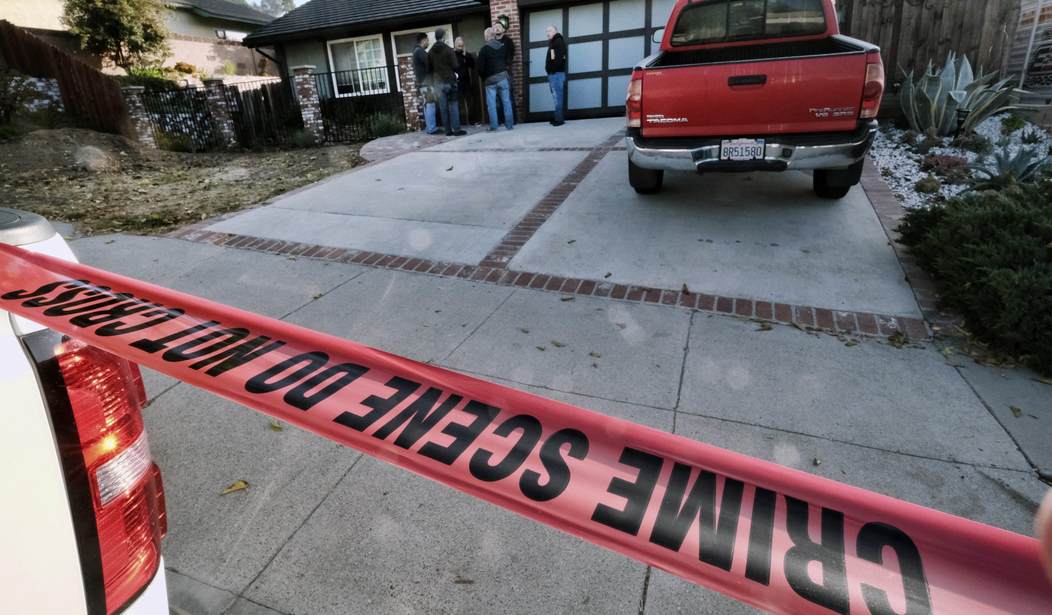Post-traumatic stress disorder (PTSD) is ravaging veterans. Suicide rates are skyrocketing. Twenty-one veterans a day commit suicide. When Ian David Long opened fire at a bar in Thousand Oaks, Calif., and killed 12 people, there was immediate speculation (including from the president) that Long suffered from PTSD. “He was a war veteran. He was a Marine. He was in the war. He served time. He saw some pretty bad things, and a lot of people say he had PTSD, and that’s a tough deal,” the president told reporters.
PTSD sufferers struggle with many debilitating symptoms like nightmares, interrupted sleep, depression, emotional numbness, brain fog, flashbacks, and more. But a new experimental treatment seems to be helping PTSD symptoms in every subject it is tried on — with long-term success. Dr. Harold Kraft received his MD at Georgetown University and was a clinical anesthesiologist for fifteen years. Personal relationships with two women who were the victims of sexual assault and suffered from PTSD made him interested in the subject. He read an article about a study done in Colorado that treated ten patients successfully with laser therapy and then created a dose-response curve. “As an anesthesiologist, that’s what I look for as a sign of real therapy, like a drug,” Kraft told PJM. When the dose of a medication goes up, the response increases relative to the dose. “But I realized they were using too small a dose. I wanted to increase the dose and shorten the treatment time.”
Kraft partnered with Pat Dane, a business man and father of a former Ranger/sniper who got airlifted out of Afghanistan four years ago. Dane and Kraft have been trying valiantly to get the Department of Veterans Affairs interested in conducting a larger study after treating ten patients with huge success. “There was a 95 percent improvement that lasted one year from a three-week treatment,” said Kraft. “Nightmares stopped completely and patients had improved sleep, less depression, more job opportunity and less brain fog.”
The treatment consists of using a laser to access the frontal cortex in the brain. People who have PTSD show physical signs of brain changes. “It’s observable on an MRI that the frontal cortex shrinks over time,” said Kraft. “The way the laser works is to stimulate tissue growth and repair,” he continued. “We absolutely expect to see that the frontal cortex is bigger in size and higher functioning after laser treatment.” Unfortunately, Kraft and Dane lack the funding to do those follow-up tests as of yet. Current treatment for PTSD consists of antidepressant medication and talk therapy. “There are two problems with medication,” said Kraft. “They must take it for life and it is only a bandaid. Many on it report feeling that medication dulls their brain. Laser therapy appears to be a permanent treatment.”
Dane’s son, who served in Afghanistan, lost six of the eight members of their group of Rangers to suicide within two years after they got out. “They were the first group of Rangers who jumped into Khandahar,” said Dane. “The situation is dire and yet the VA completely ignores our pleas to help us study this revolutionary treatment.”
Multiple attempts to contact the VA by Kraft and Dane went unanswered. PJM tried to reach out to them and found it exceedingly difficult. The website is hard to navigate and contact information sends callers to a recorded line. After a week of sending out inquiries to many different VA offices, PJM received this reply from Director of Veterans Affairs Susan Carter: “VA does not have the statutory authority to make research grants to non-VA entities. Non-VA organizations, individuals, or entities may partner with VA researchers, but those collaborations are conceived and implemented locally.”
Kraft and Dane tried multiple times to reach out to their local VA to partner with them for a larger study, but were not successful in reaching anyone. “The federal government has spent $15 Billion over the past 6 years and have not developed a successful cure,” responded Dane, “and we could do more than they have done for as little as $500,000.” More study is critical to bring this treatment to more veterans in need. “Our goal is to treat 40 vets for free in a trial, but we need funding and partnership with the VA to get access to interested patients,” Dane continued. While the lasers used are FDA-approved class IV lasers, they are not approved for pain therapy. The risk appears to be low, however, as these same lasers are used in dermatology.
President Trump recently signed Right to Try legislation into law, which allows terminal patients to try non-FDA approved experimental drugs and therapies. Whether that may apply in PTSD cases is unknown, but it may allow veterans who are suffering to try this therapy. In comparison to traditional treatments over a lifetime, this therapy is much cheaper. A treatment that lasts three weeks is around $10,000 and has provided a year of relief so far. Whether it will continue past one year is still being observed. “One-year relief is considered a permanent cure,” said Dr. Kraft. “Not only is this therapy less expensive and better but we will have the ability with the proper funding to outfit a truck and take the therapy to veterans in remote locations because of how scaleable it is.”
Kraft and Dane have a real passion for people with PTSD and are hoping someone will take notice of their great results and help them bring it to all people — including sex abuse victims and veterans — who need relief from this crippling condition. “The reality is that 22 veterans are killing themselves every day. This can’t continue when there is help available,” said Dane.
Any potential investors can reach out to Dane and Kraft at [email protected] and see the website here.










Join the conversation as a VIP Member